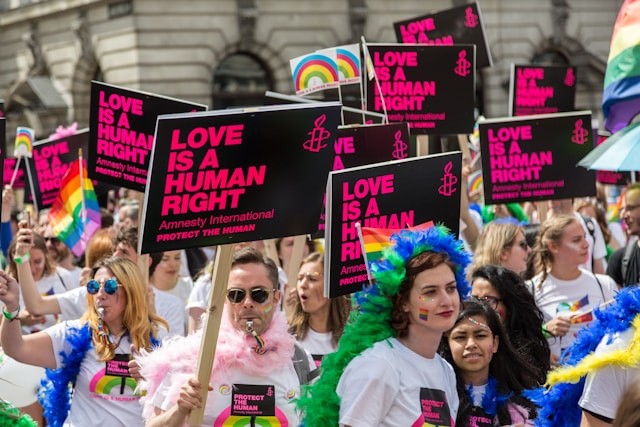For couples worldwide, Valentine's Day is a symbol of love. But for America's same-sex couples, it represents a struggle. Their marriages face potential danger against a rising tide of anti-LGBTQ+ bills. The holiday, a celebration of love, has become a mark of resistance for the LGBTQ+ community.

The Uneven Playing Field for LGBTQ+ Rights
Relentless efforts of activists led to the recognition of same-sex marriages for almost a decade. It was a historical victory for love. Obergefell v. Hodges became a beacon of hope that justice prevailed. Same-sex marriages obtained legal recognition, no matter where the couples lived or whom they loved. However, the rights achieved are now under threat.
Anti-LGBTQ+ bills are increasing against the backdrop of a secure love milestone. In the past year, a record 510 anti-LGBTQ+ bills were introduced in state legislatures. The rising anti-trans sentiments are linked with growing transphobic and homophobic hate crimes. Violent acts against LGBTQ+ individuals like Laura Ann Carleton, who lost her life showcasing a Pride flag, are dangerously escalating.
LGBTQ+ Rights, A Never Settled Issue
The misleading narrative of America solving the issue of queer rights is swiftly unraveling. The increasing hatred unveils a moment of concern. LGBTQ+ rights are at stake in the 2024 elections. Constitutional amendments, legislative elections, and the presidential victory could determine these rights. The Supreme Court leans towards an extremely reactionary body, potentially limiting the future of LGBTQ+ rights.
Justice Clarence Thomas's statement triggered worry. He mentioned the need to reconsider rights like same-sex marriage after abortion rights faced judicial setbacks. In retaliation, Congress passed the Respect for Marriage Act, forcing states to recognize same-sex marriages conducted elsewhere. However, the Act offers limited protection.
What Holds the Future for LGBTQ+ Marriages
Impending dilemmas expose the necessity to act. The ability to issue new marriage licenses to same-sex couples remains unclear if the court overrules Obergefell. Thus, some states have taken action to fortify same-sex marriage in advance.
The New York state legislature passed an amendment named Equal Rights. It protects LGBTQ+ individuals by integrating them into the state Constitution. California voters have the opportunity to do the same. They will vote on an amendment to remove the state's standing ban on gay marriage.
The ACLU identified an alarming 402 anti-LGBTQ+ bills across the USA. These go as far as eliminating any mention of sexual orientation in schools or compelling teachers to inform parents regarding pronoun preferences deviating from the biological sex of students. Consequently, these bills create a hostile environment for the LGBTQ+ community.
Political Tug of War on LGBTQ+ Freedoms
Significant influence lies within the Supreme Court over LGBTQ+ freedoms. Trump's appointees began to dismantle gay rights. They ruled in favor of a Christian web designer's refusal to support gay couples professionally. This ruling sets a dangerous precedent.
A second Trump tenure and the potential appointment of Federalist Society justices could plunge LGBTQ+ rights into chaos. This dystopian prospect could challenge conversion therapy bans. Furthermore, homophobic judges could find their way into lower courts. The rights secured by Obergefell might find themselves under scrutiny.
But if President Biden secures reelection with a Democratic House and Senate, he could transition the Respect for Marriage Act into federal law. In the fortunate event of onboarding more justices, he could prevent a drastic rightward shift of the Supreme Court. This possibility could preserve LGBTQ+ rights.
Throughout the upheaval, Justice Sonia Sotomayor induced hope. She emphasized that the real power for justice and equality lies within its citizens. As we remember, Valentine's Day is not only the celebration of love for LGBTQ+ couples. It is also a stark reminder that their right to love is threatened, urging collective action to prevail.




